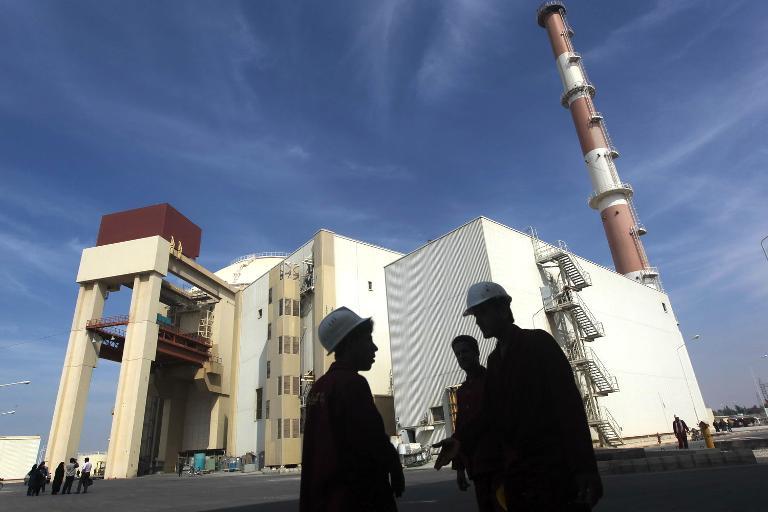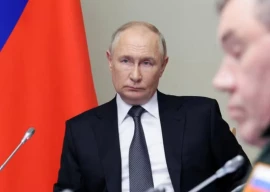
With the old foes both deeply concerned by the insurgency in Iraq, the Wall Street Journal reported that top US and Iranian negotiators might hold direct talks in Vienna about how to halt a lightening Sunni militant offensive.
US Deputy Secretary of State William Burns, who held secret nuclear talks with Iran in 2013, was due in Vienna, as was Iranian Foreign Minister Mohammad Javad Zarif.
Zarif was a key interlocutor between Iran and the US government after September 11, 2001, when both sides were keen to oust the Sunni Taliban in Afghanistan, the Wall Street Journal said.
But any talk of Iraq would be secondary, with the main purpose being efforts towards a comprehensive nuclear deal with only five weeks before a July 20 deadline.
"Whatever dialogue may or may not be taking place would take place on the sideline or outside of the mainstream of the nuclear talks," US Secretary of State John Kerry said on Friday.
The five permanent members of the UN Security Council plus Germany want Tehran to scale back its nuclear activities, while Iran wants all UN and Western sanctions to be lifted.
This long hoped for accord would be aimed at once and for all silencing fears that Tehran might develop nuclear weapons, and averting a slide into international conflict.
Both sides caution that there is a long way to go as negotiators confront the same sticking points that have dogged diplomatic efforts for the past decade.
Iranian President Hassan Rouhani said on Saturday there were still "differences, and in some issues the gaps are substantial".
"On the more important issues, there haven't even been glimpses of solutions," said a Western diplomat involved in the negotiations.
The many thorny issues to be resolved in what would be a fiendishly complex deal include the duration of the mooted accord and the pace and timing of any sanctions relief.
Others include Iran's partially-built Arak nuclear reactor, which could give it weapons-grade plutonium, and Tehran addressing allegations of past atomic weapons research.
But the gorilla in the room remains uranium enrichment, a process that can produce nuclear fuel but also, when highly purified, the core of an atomic bomb.
Iran wants to massively increase the number of centrifuges, saying it needs them to produce the fuel for a future fleet of civilian nuclear plants.
The West says that such facilities are years if not decades away from being built, fearing that Iran's real aim is to use the enriched uranium for a bomb-something Tehran denies.
French Foreign Minister Laurent Fabius said last week that the West wants Iran to slash the number of centrifuges - the machines used to enrich the metal-to "several hundred" from the current 20,000.
"We are not even in the same ballpark," said Fabius. "Wanting hundreds of thousands of centrifuges is pointless unless you want the bomb."
Under an interim deal struck in November, Iran agreed to freeze certain nuclear activities for six months in return for minor sanctions relief.
This comes to an end on July 20 but it can be renewed if needed-and if both sides agree.
Experts say such an extension is likely already under discussion.
"The powers and Iran have been drafting documents in preparation for an eventual extension for a long time," Mark Hibbs, of the Carnegie Endowment for International Peace, told AFP.
US President Barack Obama would much prefer to get a deal by July 20 in order to fend off accusations that Iran is merely buying time ahead of midterm US elections in November.
This has been the long-standing accusation made by Israel, the Middle East's sole if undeclared nuclear-armed state, which refuses to rule out bombing Iran's nuclear facilities.
But Rouhani argues Tehran is "serious in the negotiations"-and that an accord is possible in time.
"It will be in the interest of everyone if a deal is signed in the next five weeks," he said.
COMMENTS (1)
Comments are moderated and generally will be posted if they are on-topic and not abusive.
For more information, please see our Comments FAQ

















But Iran has already categorically denied it - they said they will restrict to nuclear talks when their negotiators meet with the US under secretary in Vienna.